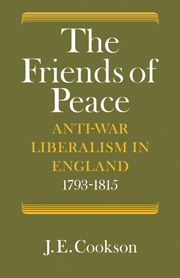Book contents
Summary
The study of the British press in the fifty years after 1780 has lagged disappointingly for a long time. Work which has a greater span than the local or biographical is rare, and the amount which has been published year by year makes it hard to believe that communications studies are a burgeoning social science. The provincial newspapers of this period, for instance, badly need attention. They were no more exempt from growth and innovation than the metropolitan papers, and their development was not simply reflective or imitative but closely bound up with communal changes. If we would exact a more rigorous definition of ‘the rise of the provinces’, we could do worse than examine carefully newspaper enterprise outside London and its social history. Much the same might be said of the reviews and magazines of the day. These, of course, did not have a strong local base; indeed the Edinburgh Review was the first successful periodical of this kind operated from outside London, and it was only very gradually that London's virtual monopoly began to disappear after there had been many provincial casualties. Yet it is fair to say that these periodicals had a social base in the increasing reading public centred on the middle classes. To date this literature, very strong-selling in its day, has merely been picked over by political and, more especially, literary historians.
Within the publishing industry, the only group that has begun to be rescued from obscurity is the London newspaper magnates. The booksellers and the writers, including the journalists, are two others which particularly cry out for attention.
- Type
- Chapter
- Information
- The Friends of PeaceAnti-War Liberalism in England 1793–1815, pp. 84 - 114Publisher: Cambridge University PressPrint publication year: 1982

